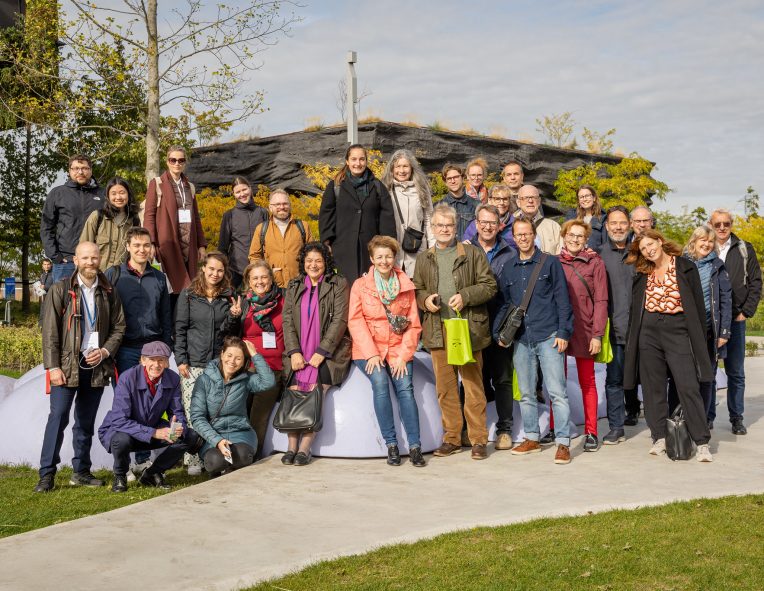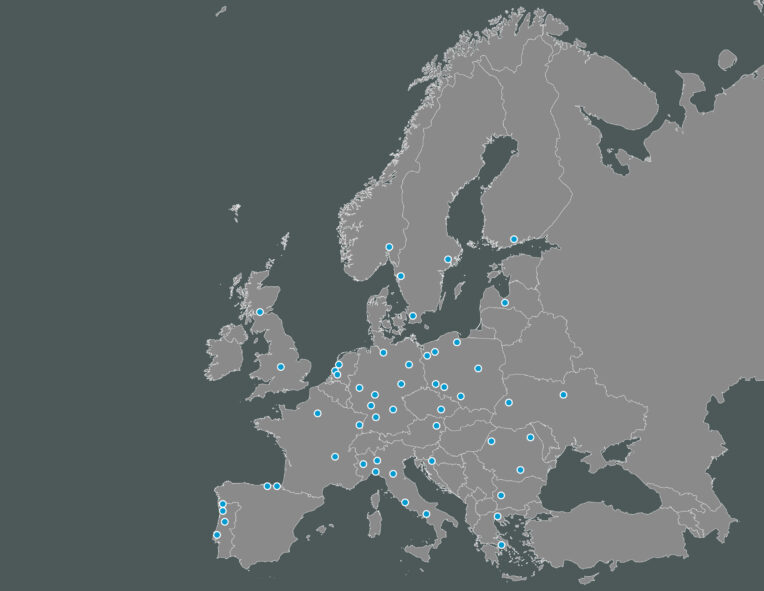The Productive City Expert Group aims to analyse and address how metropolitan regions and cities can embrace and benefit from production.
The 2020 New Leipzig Charter (NLC) introduced the Productive City as one of the three main programmes. The Charter presented an ambitious but loosely defined a narrative of how cities and metropolitan regions should embrace production, particularly new forms of production. In practice, what does this mean?
Despite common perceptions, production has far from left European metropolitan areas and remains a vital part of the economy. There are many reasons for cities and metropolitan regions to embrace production and protect urban conditions to make physical ‘things’. In the shadow of unreliable supply chains, war, pandemics and geo-political instability, local forms of production must urgently be re-explored. This includes attracting high-tech companies and talent, retaining craft and cultural related activities, creating space for local innovation, providing diverse and accessible employment, ensuring that cities can be maintained and developed with local skills and materials, addressing waste and resource flows and so forth.
The public sector can play the vital role of gatekeeper in protecting spaces for production and as a champion in ensuring that production activities remain both valued and visible in cities. But for many policy makers and planners, the Productive City remains conceptual. Decades of modern planning, with separated economic activities from living areas, increased environmental regulations, increased tension between residents and ‘places of production’, increased land prices and speculation, all render local production a complex challenge.
In this expert group, we will be addressing a series of questions:
- Considering limited resources and available land, what activities should be prioritised?
- Where should production happen?
- What can public authorities do?
Topics
Members were consulted on issues that they would prioritise to support them in developing a ‘productive city’. Three interrelated topics emerged that will help prioritise the focus of this expert group.
Production based activities are attracted to cities because of accessible labour, skills, infrastructure and market. Therefore businesses should not be considered in isolation. Public authorities can provide an important role of stimulating production chains by looking at ways to strengthen successful established activities, or by supporting new sectors. This is especially critical for foundational activities (forms of production that the city depends on such as food or resource management) and new high-tech sectors (such as electronics, pharmaceuticals, new materials…).

Spatial design can be critical in providing adequate conditions in urban areas. For example, new forms of production and new technology are allowing for production based activities to be mixed with other activities that may not have traditionally been combined. Many cities are facing a severe shortage of space and therefore are looking at industrial land to provide public space or social housing therefore industrial co-location may be an answer. Likewise, clusters or tech campuses offer space where similar or complementary businesses can be located.

Production across Europe has increasingly left dense cities and expensive core cities, to find more suitable locations within the metropolitan area where land is more affordable and there is less tension with neighbours. This may mean that local or regional governments need to set aside political differences, align interests and collaborate. Metropolitan governance remains a challenging issue, however the economy can be a useful point of departure.

Output
This expert group aims to provide material that members can put into action, namely:
- Case studies: building on the 27 case studies developed through the ESPON MISTA project.
- Presentations from experts and academics: recordings of presentations on topics such as data, density, planning, clusters and so-forth according to specific interests from the members of the expert group.
- A handbook: material collected throughout the meetings will be compiled into a handbook that the public authorities can apply directly.
Activities
September 2022: Kick-off meeting for the new Productive Cities Expert Group
April 2023: Cities as incubators for production
with Dr. Francesca Froy, Lecturer on Sustainable Urban Development at the University of Oxford, UK
June 2023: Physical spaces for production in urban areas 2023
with Thierry Petit, Senior Economist at l’Institut Paris Région, FR
November 2023: The Hague and Oslo Productive cities
with Ida Søgnen Tveit, urban planner in the City of Oslo (NO), and Jerryt Krombeen, senior urbanist for the Binckhorst, City of The Hague, NL
March 2024: Vienna Productive City
with Michael Rosenberger, Senior Strategic Planner at the City of Vienna, AT
June 2024: Brussels Productive City
Presentation on the Brussels Observatory of Productive Activities
with Dalila Ghodbane, Perspective Brussels, BE
Key contact
Group Leader
Adrian Vickery Hill
Osmos
Contact at the Secretariat
Viviana Rubbo
Events and Expert Groups manager, METREX
viviana.rubbo@eurometrex.org
Photo by Gavin Allanwood on Unsplash



